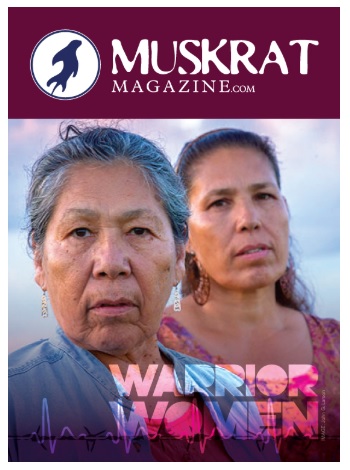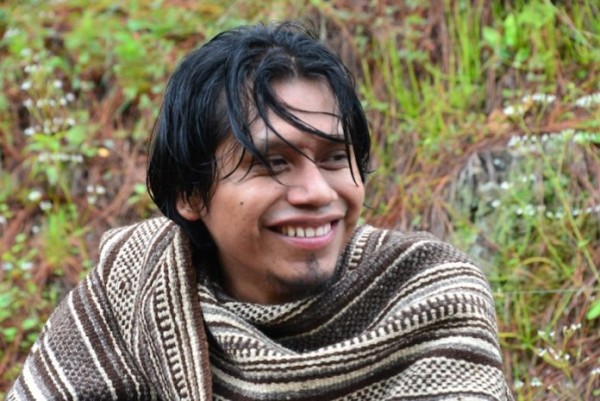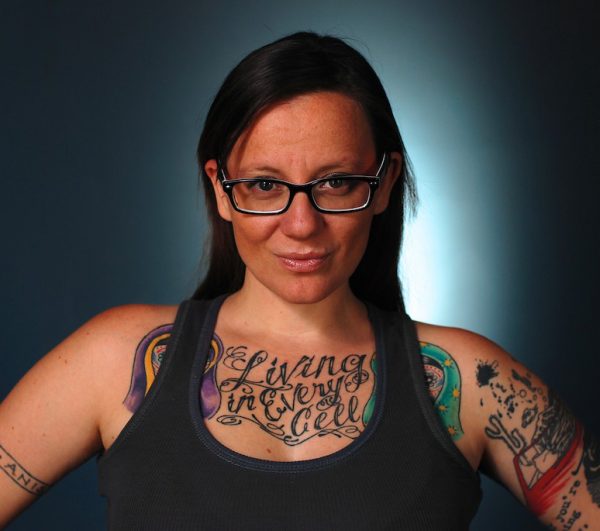The traditional culture of the Americas arrives at the Hay Festival Querétaro 2018. From the Métis community of Ontario, Canada to the Mè’phàà community of the Montaña de Guerrero region, two exponents of very different worlds but united by a parallel historical reality that brings their culture together.
Cherie Dimaline has captured her indigenous identity at every step of her literary career. She belongs to the Métis Nation of Canada, a community of descendants of the Northamerican aborigines of the territory who mixed with the Europeans who arrived.
She is the founding editor of the online magazine Muskrat, a platform for indigenous arts and culture in rural and urban contexts, which also emphasizes her traditional knowledge about their homeland.
 MUSKRAT is an online Indigenous arts and culture magazine that honours the connection between humans and our traditional ecological knowledge.
MUSKRAT is an online Indigenous arts and culture magazine that honours the connection between humans and our traditional ecological knowledge.
In 2014, Cherie became the first indigenous writer whose work was available at the Toronto Public Library. That same year she won the Ontario Emerging Artist of the Year Award for Excellence in the Arts.
So far she has published four books. Her first, Red Rooms (2007), is an anthology of stories about hotel guests seen through the eyes of an indigenous waitress who works there.
Her latest book is called The Marrow Thieves (2017) and is a dystopian novel about a future in which most human beings have lost the ability to dream, with the exception of the indigenous groups of North America.
In this story, the indigenous people are systematically persecuted and hunted, because their bone marrow can return dreams to the rest of the world.
Hubert Matiúwàa makes social poetry in Spanish and Tlapaneco, a language that remains alive with the voice of more than one hundred thousand people, related to other languages already extinct. A native of Minaltepec, Guerrero, this author points out through his verses the racism, machismo and violence suffered in our country, especially in the indigenous communities.
He has published two poems, Piel de Tierra (Earth skin) and Cicatriz que mira (Scar looking at you), both with the Pluralia publishing house (in co-edition with the Secretariat of Culture of Mexico City in the case of Cicatriz que mira).
He is the first winner of the Prize for Literary Creation in Original Languages Cezontle, in 2016, an achievement that is worth noting because it is Mexico that leads the list in number of authors in native languages in Latin America.
In 2017 his talent was recognized again, this time as the winner of the Indigenous Literature of America Award, an recognition created by different entities of the state of Jalisco and the rest of Mexico to stimulate literary creation in the ancestral languages of the continent.
The contribution of these two writers that not only enriches the collection of creation and knowledge of indigenous cultures, but also improves the repertoire of this festival that pays homage to creativity and human intelect.
Hay Festival Querétaro will bring together these two exponents of indigenous literature in a conversation led by journalist Ingrid Bejerman on Friday, September 7 from 10:30 to 11:30 at the Cineteca de Querétaro.
Additionally, we will have the premiere of the first chapter of the documentary series Miradas sin filtro, created and produced by Claudia Ivonne Hernández for RTV Querétaro, which explores the daily life of indigenous communities in the state of Querétaro, The feature presentation will be held on Thursday, September 6, 17: 00 to 18:30 hours at the Cineteca de Querétaro.
As part of this festival, Hay Festivalito is a program for children, organized in collaboration with the Autonomous University of Querétaro, we will have this activity on indigenous literature, designed for children to get involved and get to know the original cultures of their country.
Boys, girls and superheroes, we all speak different languages, is the name of the workshop featuring Alberto García, Luz María Lepe and Jorge Tapia, scheduled for Sunday September 9, at 11 am, at the Intercultural Education and Mediation Laboratory, Faculty of Philosophy of the Autonomous University of Querétaro.
Tickets for each event are now on sale at www.hayfestival.org/queretaro and there is free admission for students, people over 65 and people with disabilities (25% of total seats available in the general program).
Finally, there are other activities totally free in the sections Hay Joven, Hay Festivalito, Editorial Talent and the concert of Celso Piña and its Ronda Bogotá.
Source: rotativo.com.mx


